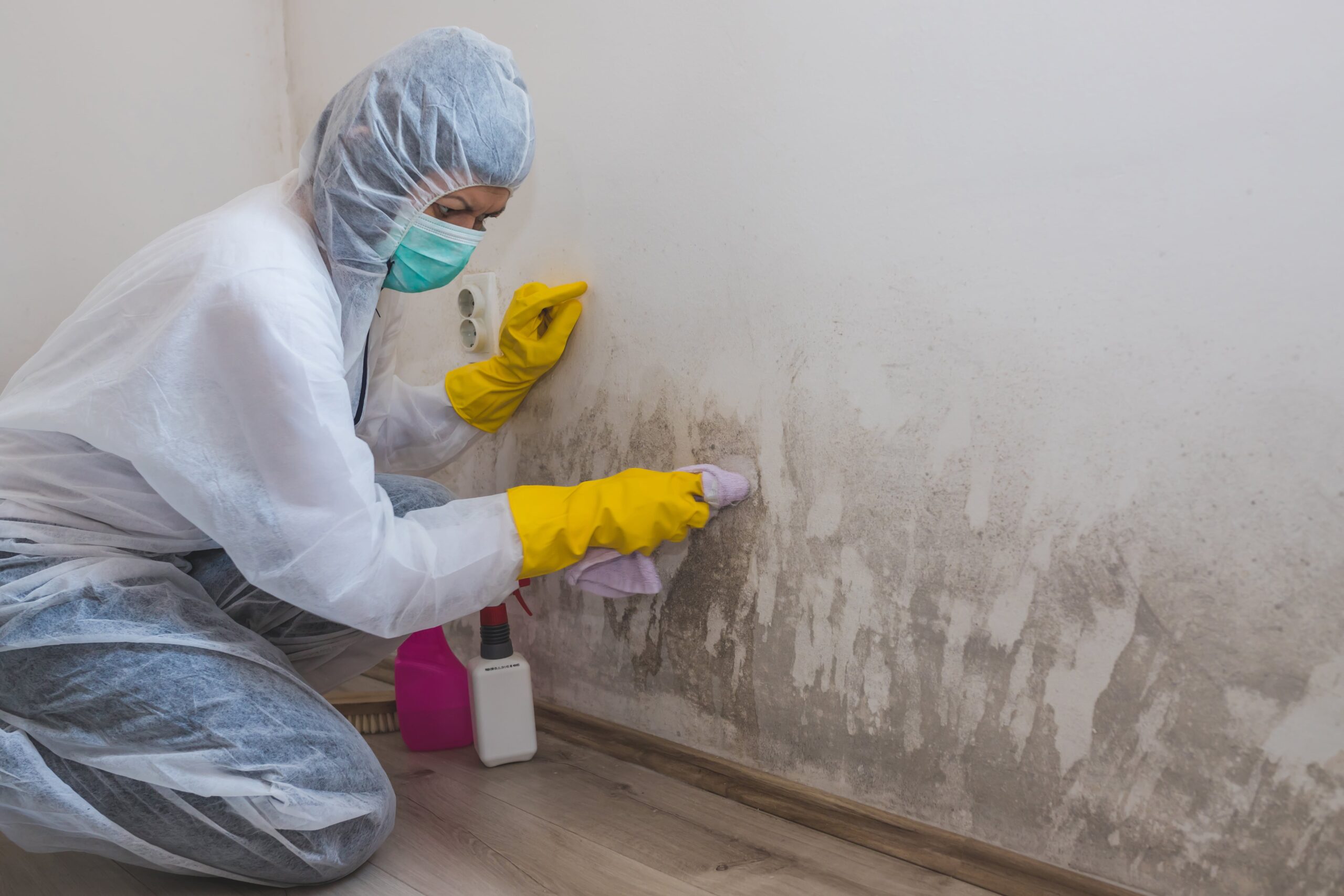There’s hardly anything more stressful for a homeowner than discovering mold. The good news is you don’t have to live with this problem. Mold remediation companies can repair your water issues, clean the affected area, and offer helpful suggestions to ensure that the mold doesn’t come back.
However, there are many people who wonder whether or not they’ll be allowed to stay in their homes during the remediation process. Ultimately, there’s no one-size-fits-all answer to this question. Every circumstance is unique.
In most cases, the safest option is for you and your family to leave the property until the process is complete. In fact, many companies prefer that occupants aren’t present during remediation. This is especially true if there are multiple rooms affected. Let’s take a quick look at what factors can determine whether or not you should stay in your home during mold remediation.
-
The Areas Affected
When considering whether or not you should stay during mold remediation, you need to consider which rooms are affected. Specifically, you need to think about which rooms are the most essential and how it will impact your daily life. For instance, if remediation will be taking place in your only bathroom, this will present a significant challenge to you and your family. In this instance, it’s best that you find temporary housing until the project has been completed.
However, if the kitchen is affected, you may be able to stay in your home if you can find workarounds. Perhaps you can set up a microwave and mini fridge in a spare room while the work is being completed. Just keep in mind that though this may work for a couple of days, if the project takes longer than this the inconvenience may be more than you can handle.
-
The Scope of the Work
It’s important that you consider how extensive the work will be. Smaller projects are easy to complete and may be finished within a short amount of time. This means that the disruption will be minimal. However, if there’s a lot of work to be done, remediation can take weeks to complete. And if you choose to stay it could lead to a significant amount of stress.
There are instances in which every area of the home may be affected. This will require you to pack up most or all of your belongings. Staying in your home during this particular process isn’t practical.
-
The Amount of Debris
Most companies do a thorough job of containing the affected area. This helps to ensure that the rest of the house isn’t filled with the dust that comes along with remediation. But during reconstruction, the debris can be an issue. This is particularly true if the occupants decided to stay during the process. -
Sensitivity to Noise
What a lot of homeowners don’t realize is that there’s a lot of noise involved in the mold remediation process. Companies use equipment such as dehumidifiers, air machines, fans, and more. These pieces of equipment are usually necessary for containment.
It’s important to consider how sensitive you are to noise. While you may be able to turn the machines off at bedtime, it’s not always recommended. If you’re easily disturbed by certain sounds, then you can save yourself a lot of stress and frustration by leaving the property until remediation is complete.
-
Sensitivity to Temperatures
Another element that’s often overlooked when it comes to mold remediation is the temperature. Sometimes the HVAC system needs to be cleaned. And in these instances, the HVAC will be shut off until the project is complete. Also, there’s a lot of equipment in use and this can make your home even warmer. When temperatures rise to excess, the occupants will be extremely uncomfortable. -
Sensitivity to Mold
The biggest factor when you’re considering whether or not you should remain in your home during remediation is your level of mold sensitivity. How much exposure will your body be able to take? Sure, you may have lived with mold without any problem. But keep in mind that the concentration of mold tends to become even higher during the mediation process.
Even though companies work to contain the affected area, there’s always a chance that it will still affect other rooms of your home. And if it does, then you could possibly get extremely ill. If you’re not sure about how sensitive you or your family members are to mold, then you need to leave the house until the project has been completed.
Conclusion
Can you stay in home during mold remediation? Well, as you can see, there are several factors involved in this decision. While in some instances, staying on the property will only result in a minor inconvenience, in others it could be life-threatening. If you want to be on the safe side, then it’s best to find temporary housing until the project is complete. This will help to cut down on your stress level and ensure that you and your family remain in the best of health.
r website blog. Please check back for great content!

